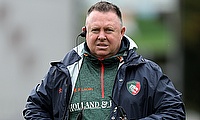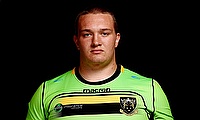Equity in Rugby: What valuation model should we use?
Talking Rugby Union are delighted to announce that Jonathan Beardmore, known to many as JB will be writing a regular feature here. Known in rugby circles for his outstanding on field performances with Didsbury Toc RFC and the leading rugby podcast, Eggchasers; his insight, analysis and perhaps controversial views will add further original rugby commentary. In his first article, he looks at the balance of boardroom versus playingfield.
Seldom has there been a Director of Rugby who has done so much with so little as Steve Diamond.
Through his force of will he has produced hardened premiership teams year after year. Give him any 8 players and he will have a serviceable premiership pack in a week. It is no exaggeration to say that without Diamond Sale might have been in a London Welsh style situation.
Diamond has been the Forwards coach, head coach, Director of rugby and the chief executive at Sale. In the future he may hold more power still but more on that later.The new investment provided by Simon Orange and his fellow investors means players like the excellent Curry Twins, Sam James, captain Will Addison, Mike Haley are all signed up on long-term deals. Add this to the potential in the Academy and a smattering of new signings in key positions, Sale could well be the Exeter of the North.
However dark clouds are starting to form, gone is the preseason talk of top 4 or top 6, at this rate Sale would be lucky to win 7 games all season and no team has made the premiership play-offs with more than 8 losses. Ideally then you’d expect Diamond to be exposing as many of their talented youngsters as possible to life in the premiership, but something rather odd is occurring at Sale. For instance, the short-term signing of the magnificent Johan Janse van Rensburg. Throwing the kitchen sink at short-term signings is all well and good if you’re going to win the premiership but hardly a good plan if you are building for the long term.
In the Summer I was fortunate enough to interview Simon Orange. Two things stuck out. Firstly, Sale is owned by Orange's company Corpacq. There is nothing untoward about this and there is solid commercial reasoning behind it, furthermore should the club not make a profit and benefit Corpacq’s shareholders he has explicitly said he will take on the financial risk personally. However, success in Orange’s eyes equals profitability, if not now certainly in the near future.
The second thing I learned during our interview is according to Orange; “should we make certain targets than Steve Diamond and Mark Cueto will both be shareholders of Sale”.Exactly what these targets are is commercially sensitive but finishing 10th in the premiership may not cut the mustard.
Between Corpacq’s need for profitability and Diamonds need to hit targets, Sale might be tempted to embrace a "win now" mentality rather than building via the academy.It’s certainly hard to imagine Rob Baxter scrambling to the phone to sign Marland Yarde. Having said that Danny Cipriani left Sale as one of the premiership’s most valuable playmakers and a reformed character after a stint with Diamond.
Furthermore, is Diamond flexible enough in his approach to handle top-class players. There is no doubting his rugby intellect but motivating a group of world-class individuals is much different to motivating players who’s next stop is the championship.
Lastly and most seriously is the dark cloud of that touchline ban for Diamond. He is more important to Sale than any other Director of Rugby is to any other club, match day is no different. It is a real concern, however, the weekend’s result versus the Saints must provide positivity for fans; as without that win, fans would have become fixated on Worcester’s recent high profile wins.
They have a talented coaching staff at Carrington but no one with the experience to run the team on a match day (although I believe Neil Briggs has real potential in this role).
In conclusion it’s going to be difficult for Sale and Diamond with a large ban, miss whatever targets and spend lots of Corpacq’s money in the process; it might be a rather bleak outlook for one of England’s most effective DoRs.









